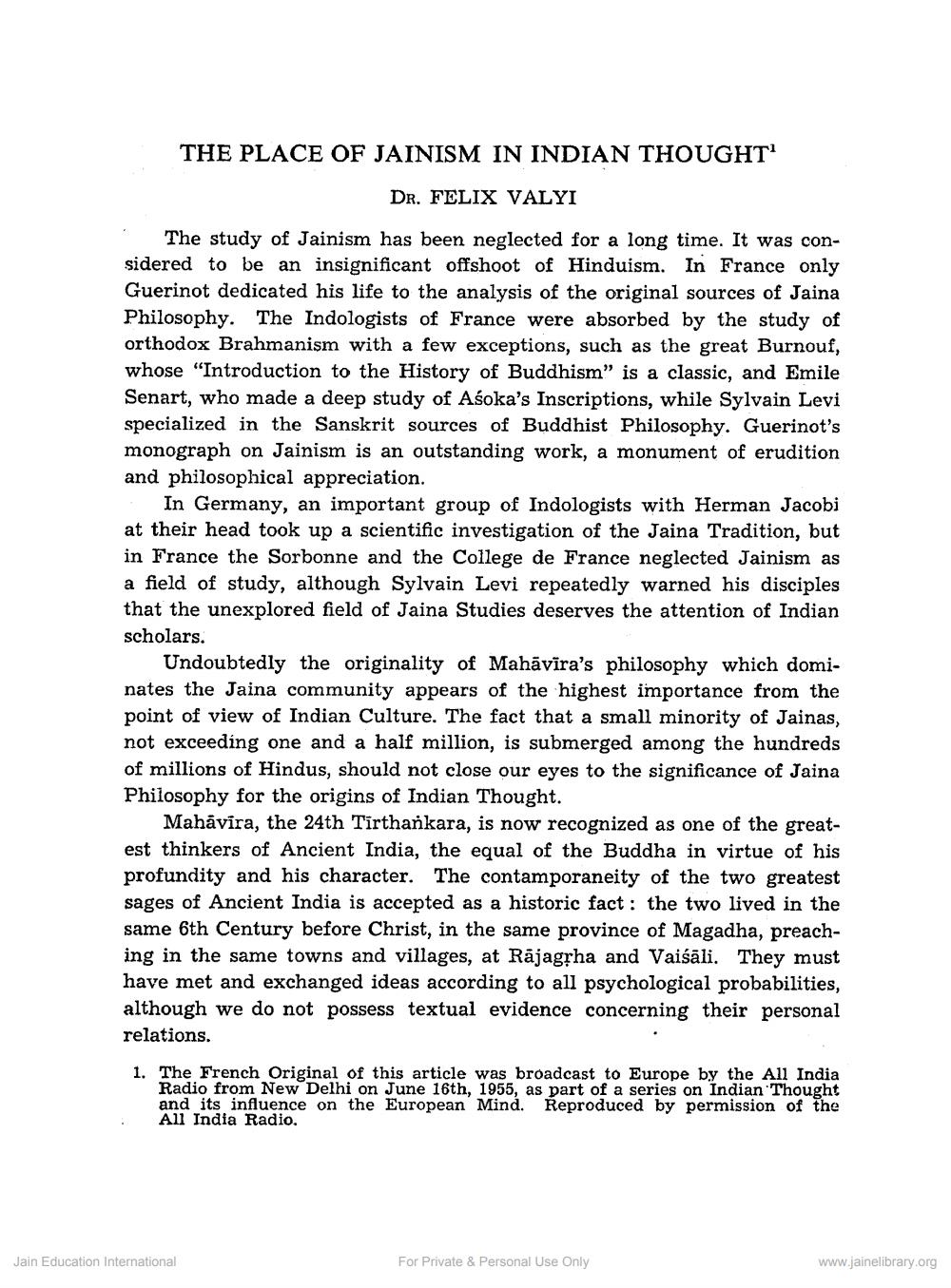Book Title: Place of Jainism in Indian Thought Author(s): Felix Valyi Publisher: Z_Vijay_Vallabh_suri_Smarak_Granth_012060.pdf View full book textPage 1
________________ THE PLACE OF JAINISM IN INDIAN THOUGHT DR. FELIX VALYI The study of Jainism has been neglected for a long time. It was considered to be an insignificant offshoot of Hinduism. In France only Guerinot dedicated his life to the analysis of the original sources of Jaina Philosophy. The Indologists of France were absorbed by the study of orthodox Brahmanism with a few exceptions, such as the great Burnouf, whose "Introduction to the History of Buddhism” is a classic, and Emile Senart, who made a deep study of Asoka's Inscriptions, while Sylvain Levi specialized in the Sanskrit sources of Buddhist Philosophy. Guerinot's monograph on Jainism is an outstanding work, a monument of erudition and philosophical appreciation. In Germany, an important group of Indologists with Herman Jacobi at their head took up a scientific investigation of the Jaina Tradition, but in France the Sorbonne and the College de France neglected Jainism as a field of study, although Sylvain Levi repeatedly warned his disciples that the unexplored field of Jaina Studies deserves the attention of Indian scholars. Undoubtedly the originality of Mahāvīra's philosophy which dominates the Jaina community appears of the highest importance from the point of view of Indian Culture. The fact that a small minority of Jainas, not exceeding one and a half million, is submerged among the hundreds of millions of Hindus, should not close our eyes to the significance of Jaina Philosophy for the origins of Indian Thought. Mahavira, the 24th Tirthankara, is now recognized as one of the greatest thinkers of Ancient India, the equal of the Buddha in virtue of his profundity and his character. The contamporaneity of the two greatest sages of Ancient India is accepted as a historic fact: the two lived in the same 6th Century before Christ, in the same province of Magadha, preaching in the same towns and villages, at Rajagrha and Vaiśāli. They must have met and exchanged ideas according to all psychological probabilities, although we do not possess textual evidence concerning their personal relations. 1. The French Original of this article was broadcast to Europe by the All India Radio from New Delhi on June 16th, 1955, as part of a series on Indian Thought and its influence on the European Mind. Reproduced by permission of the All India Radio. Jain Education International For Private & Personal Use Only www.jainelibrary.orgPage Navigation
1 2 3 4 5
